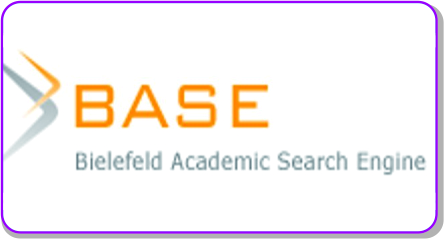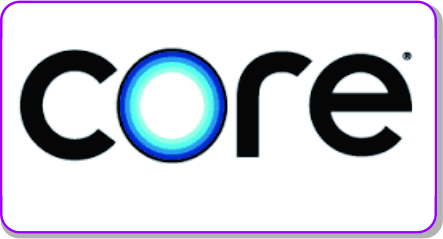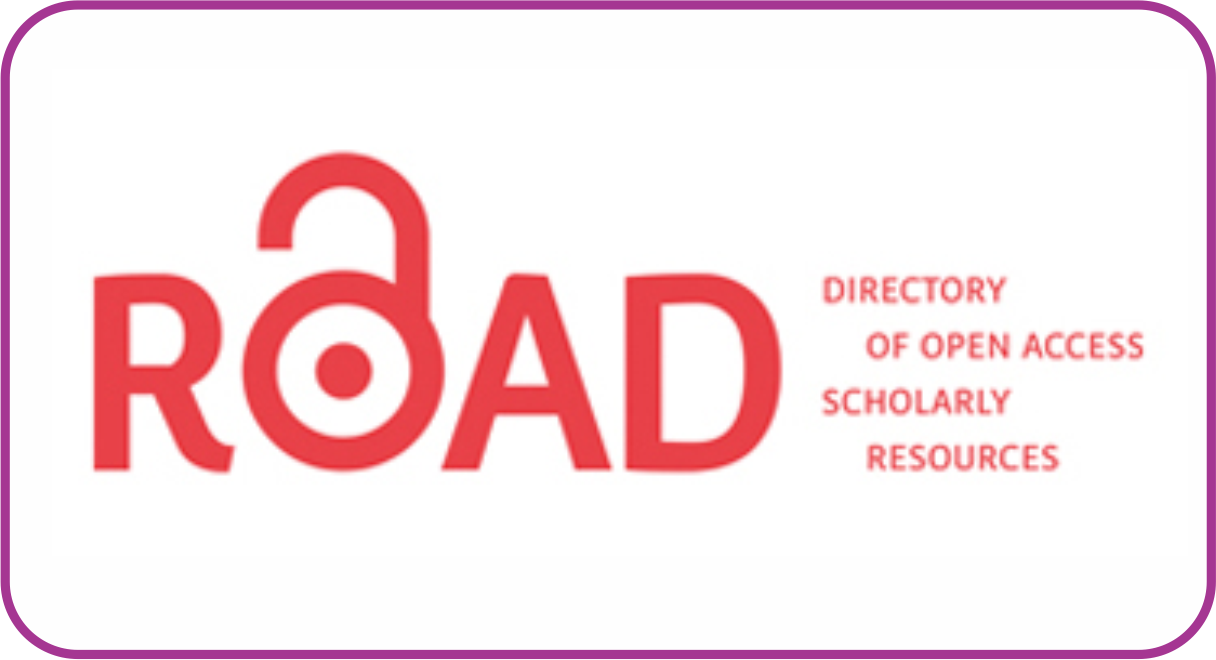Parental Social Support as a Predictor of Student Career Adaptability
DOI:
https://doi.org/10.30983/educative.v8i1.6106Keywords:
Social Support, Parents, Career AdaptabilityAbstract
This study aims to describe the form of social support that students receive from their parents as a form of social support in choosing students' future careers. Facing the transition to the world of work, students face various problems entering the world of work. Social support, especially from parents, will assist students in overcoming difficulties of confusion in choosing a career, lack of information obtained, and strengthening skills in entering the world of work. This type of research is descriptive quantitative with percentage data analysis techniques. The population is Guidance and Counseling final-year students, totaling 95 people with a total sampling technique. The results of the study illustrate that 65 respondents received social support in the high category, 12 respondents were included in the very high category, 13 respondents were included in the sufficient category and 5 respondents received low social support from their parents. Of the five aspects of social support, emotional support is the highest with an average score of 20.21, appreciation support 20.47, instrument support 19.96, information support 18.98, and social network support 15.26. There needs to be an increase in social support in the aspect of social networking from parents because it will provide broad opportunities for students to enter the world of work later.References
Books
Arikunto, S, Dasar-Dasar Evaluasi Pendidikan Edisi 3 (Jakarta: Bumi Aksara, 2021)
Baron, Robert A., & Byrne, Donn, Psikologi Sosial (Jakarta: Erlangga, 2005)
Sarafino, E., P, Health Psychology: Biopsychosocial Interaction (New York: John Wiley & Sons, Inc., 2011)
Sarafino, E, Health Psychology: Biopsychosocial Interactions. Fifth Edition (USA: John Wiley & Sons, 2006)
Shelley E. Taylor, dkk, Psikologi Sosial (Jakarta: Prenadamedia Group, 2009)
Journals
Ahmad Rofi Suryahadikusumah, ‘Improving Student Career Adaptability Through Mocroblogs’, Educative Studies, 7.1 (2022)
Alfi Rahmi, Januar, Kesiapan Memasuki Dunia Kerja pada Mahasiswa Perguruan Tinggi, ed. by Hidayani Syam Alfi Rahmi and Nory Natalia. Ahmad Masrur Firosad, 1st edn (Bandung: CV.WIDINA MEDIA UTAMA, 2022)
Angela, Glory, and William Gunawan, ‘Hubungan Antara Dukungan Orang Tua Dengan Adaptabilitas Karier Pada Siswa SMA Di Jakarta’, Humanitas (Jurnal Psikologi), 5.2 (2021), 232–48 <https://doi.org/10.28932/humanitas.v5i2.3637>
Atqakum, Luwluw, Muhammad Daud, and Muhammad Nur Hidayat Nurdin, ‘Pengaruh Dukungan Sosial Dan Kepribadian Terhadap Adaptabilitas Karier Pada Mahasiswa Tingkat Akhir’, PESHUM : Jurnal Pendidikan, Sosial Dan Humaniora, 1.6 (2019), 576–87
Barrera, Manuel, ‘Social Support Research in Community Psychology’, in Handbook of Community Psychology, 2000, pp. 215–45 <https://doi.org/10.1007/978-1-4615-4193-6_10>
Broschinski, Sven, Michael Feldhaus, Marie-Luise Assmann, and Martin Heidenreich, ‘The Role of Family Social Capital in School-to-Work Transitions of Young Adults in Germany’, Journal of Vocational Behavior, 139 (2022), 103790 <https://doi.org/https://doi.org/10.1016/j.jvb.2022.103790>
Byun, Geumsun, ‘School-to-Work Transition in South Korean Young Adults: Stratified or Individualized?’, Asian Social Work and Policy Review, 12.3 (2018), 169–82 <https://doi.org/https://doi.org/10.1111/aswp.12148>
Chan, Chun-Chen, ‘Social Support, Career Beliefs, and Career Self-Efficacy in Determination of Taiwanese College Athletes’ Career Development’, Journal of Hospitality, Leisure, Sport & Tourism Education, 26 (2020), 100232 <https://doi.org/https://doi.org/10.1016/j.jhlste.2019.100232>
———, ‘The Relationship among Social Support, Career Self-Efficacy, Career Exploration, and Career Choices of Taiwanese College Athletes’, Journal of Hospitality, Leisure, Sport & Tourism Education, 22 (2018), 105–9 <https://doi.org/https://doi.org/10.1016/j.jhlste.2017.09.004>
Chan, Chun Chen, ‘Social Support, Career Beliefs, and Career Self-Efficacy in Determination of Taiwanese College Athletes’ Career Development’, Journal of Hospitality, Leisure, Sport and Tourism Education, 26.October (2020), 100232 <https://doi.org/10.1016/j.jhlste.2019.100232>
Connerty, T J, and V Knott, ‘Promoting Positive Change in the Face of Adversity: Experiences of Cancer and Post-Traumatic Growth’, European Journal of Cancer Care, 22.3 (2013), 334–44 <https://doi.org/https://doi.org/10.1111/ecc.12036>
Cutrona, C.E, et al., ‘Peceived Parental Social Support and Academic Achievement: An Attachment Theory Perspective’, Journal of Personality and Social Psychology, 2 (66AD)
Dianto., M.Pd., Mori, ‘Profil Dukungan Sosial Orangtua Siswa Di Smp Negeri Kecamatan Batang Kapas Pesisir Selatan’, Jurnal Counseling Care, 1.1 (2017), 42–51 <https://doi.org/10.22202/jcc.2017.v1i1.1994>
Dietrich, Hans, Alexander Patzina, Jenny Chesters, and Volker Reissner, ‘School-to-Work Transition and Subjective Well-Being in Australia’, The British Journal of Sociology, 73.1 (2022), 78–111 <https://doi.org/https://doi.org/10.1111/1468-4446.12895>
Ebenehi, Amos Shaibu, Abdullah Mat Rashid, and Ab Rahim Bakar, ‘Predictors of Career Adaptability Skill among Higher Education Students in Nigeria’, International Journal for Research in Vocational Education and Training, 3.3 (2016), 212–29 <https://doi.org/10.13152/IJRVET.3.3.3>
Grant, Sheena, Elaine Cross, James Edmond Wraith, Simon Jones, Louise Mahon, Michelle Lomax, and others, ‘Parental Social Support, Coping Strategies, Resilience Factors, Stress, Anxiety and Depression Levels in Parents of Children with MPS III (Sanfilippo Syndrome) or Children with Intellectual Disabilities (ID)’, Journal of Inherited Metabolic Disease, 36.2 (2013), 281–91 <https://doi.org/https://doi.org/10.1007/s10545-012-9558-y>
Henriksen, P W, L Ingholt, M Rasmussen, and B E Holstein, ‘Physical Activity among Adolescents: The Role of Various Kinds of Parental Support’, Scandinavian Journal of Medicine & Science in Sports, 26.8 (2016), 927–32 <https://doi.org/https://doi.org/10.1111/sms.12531>
Hidayatussani, Nur, Siti Fitriana, and Desi Maulia, ‘Dukungan Sosial Orang Tua Dengan Perencanaan Karir Remaja Karang Taruna Desa Wonosalam’, Lesson and Learning Studies, 4.1 (2021), 107–11
Hirschi, Andreas, ‘Swiss Adolescents’ Career Aspirations: Influence of Context, Age, and Career Adaptability’, Journal of Career Development (SAGE Publications, 2009), 228–45 <https://doi.org/10.1177/0894845309345844>
Hirschi, Andreas, Anne Herrmann, and Anita C Keller, ‘Career Adaptivity, Adaptability, and Adapting: A Conceptual and Empirical Investigation’, Journal of Vocational Behavior, 87 (2015), 1–10 <https://doi.org/https://doi.org/10.1016/j.jvb.2014.11.008>
Hobfoll, S.E., Stress, Social Support and Women: The Series in Clinical and Community Psychology (New York: Herpe & Row, 1986)
Kim, Young Hwa, and Na-Yeun Choi, ‘Career Decision Self-Efficacy of Asian American Students: The Role of Curiosity and Ethnic Identity’, The Career Development Quarterly, 67.1 (2019), 32–46 <https://doi.org/https://doi.org/10.1002/cdq.12161>
Koen, Jessie, Ute Christine Klehe, and Annelies E.M. Van Vianen, ‘Training Career Adaptability to Facilitate a Successful School-to-Work Transition’, Journal of Vocational Behavior, 81.3 (2012), 395–408 <https://doi.org/10.1016/j.jvb.2012.10.003>
Kumalasari, Fani, ‘Hubungan Antara Dukungan Sosial Dengan Penyesuaian Diri Remaja Di Panti Asuhan’, ..Jurnal Psikologi Pitutur, 1.1 (2012), 21–31
Manuel, Donnay, Shazly Savahl, Ferran Casas, Habib Tiliouine, Deborah Isobell, Mulalo Mpilo, and others, ‘The Relation between Subjective Well-Being and Career Aspirations amongst a Sample of Adolescents in Low Socioeconomic Status Communities in Cape Town’, Journal of Community Psychology, 48.8 (2020), 2702–22 <https://doi.org/10.1002/jcop.22449>
Nikander, Jaakko, Asko Tolvanen, Kaisa Aunola, and Tatiana V Ryba, ‘The Role of Individual and Parental Expectations in Student-Athletes’ Career Adaptability Profiles’, Psychology of Sport and Exercise, 59 (2022), 102127 <https://doi.org/https://doi.org/10.1016/j.psychsport.2021.102127>
Putri, Atika Helmi, and Nurrohmatul Amaliyah, ‘Peran Apresiasi Orang Tua Terhadap Pembentukkan Karakter Siswa Madrasah Ibtidaiyah’, Jurnal Basicedu, 6.4 (2022), 7368–76 <https://doi.org/10.31004/basicedu.v6i4.3520>
Sari, Komang Elis Aprilyana, Lutfi Arya, and Wanda Rahma Syanti, ‘Benarkah Kecerdasan Emosional Dan Dukungan Sosial Penting? Studi Adaptabilitas Karir Pada Fresh Graduate’, Psikoborneo: Jurnal Ilmiah Psikologi, 10.3 (2022), 585 <https://doi.org/10.30872/psikoborneo.v10i3.8468>
Savickas, Mark L., and Erik J. Porfeli, ‘Career Adapt-Abilities Scale: Construction, Reliability, and Measurement Equivalence across 13 Countries’, Journal of Vocational Behavior, 80.3 (2012), 661–73 <https://doi.org/10.1016/j.jvb.2012.01.011>
Savickas, Mark L, ‘New Questions for Vocational Psychology: Premises, Paradigms, and Practices’, Journal of Career Assessment, 19.3 (2011), 251–58 <https://doi.org/10.1177/1069072710395532>
Wang, Zhongming, and Ying Fu, ‘Social Support, Social Comparison, and Career Adaptability: A Moderated Mediation Model’, Social Behavior and Personality, 43.4 (2015), 649–60 <https://doi.org/10.2224/sbp.2015.43.4.649>
Zeligman, Melissa, Melanie Varney, Ramona I Grad, and Mary Huffstead, ‘Posttraumatic Growth in Individuals With Chronic Illness: The Role of Social Support and Meaning Making’, Journal of Counseling & Development, 96.1 (2018), 53–63 <https://doi.org/https://doi.org/10.1002/jcad.12177>
Zhang, Huafeng, and Haitao Huang, ‘Decision-Making Self-Efficacy Mediates the Peer Support–Career Exploration Relationship’, Social Behavior and Personality, 46.3 (2018), 485–98 <https://doi.org/10.2224/sbp.6410>
Downloads
Additional Files
Submitted
Accepted
Published
Issue
Section
License
Authors who publish with this journal agree to the following terms:
1. Authors retain copyright and grant the journal right of first publication with the work simultaneously licensed under a Creative Commons Attribution License that allows others to share the work with an acknowledgment of the work's authorship and initial publication in this journal.
2. Authors are able to enter into separate, additional contractual arrangements for the non-exclusive distribution of the journal's published version of the work (e.g., post it to an institutional repository or publish it in a book), with an acknowledgment of its initial publication in this journal.
3. Authors are permitted and encouraged to post their work online (e.g., in institutional repositories or on their website) prior to and during the submission process, as it can lead to productive exchanges, as well as earlier and greater citation of published work (See The Effect of Open Access).

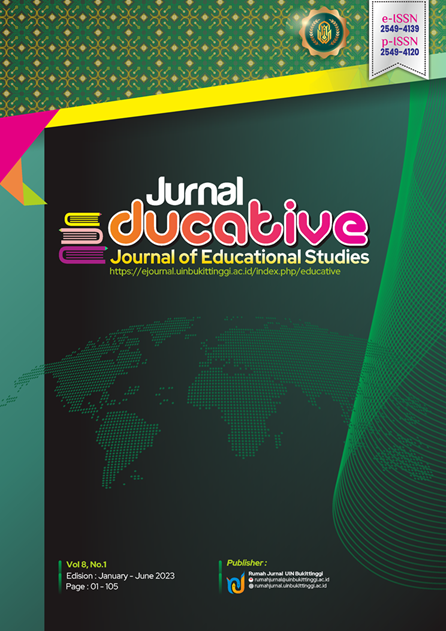



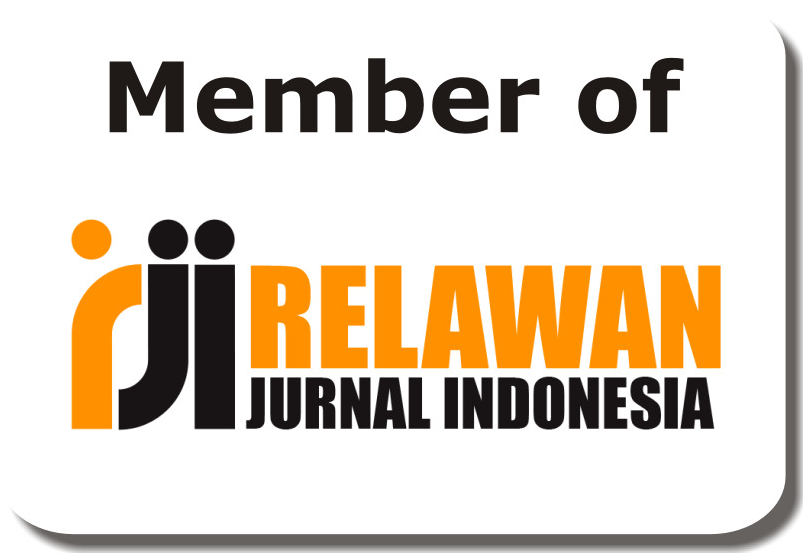


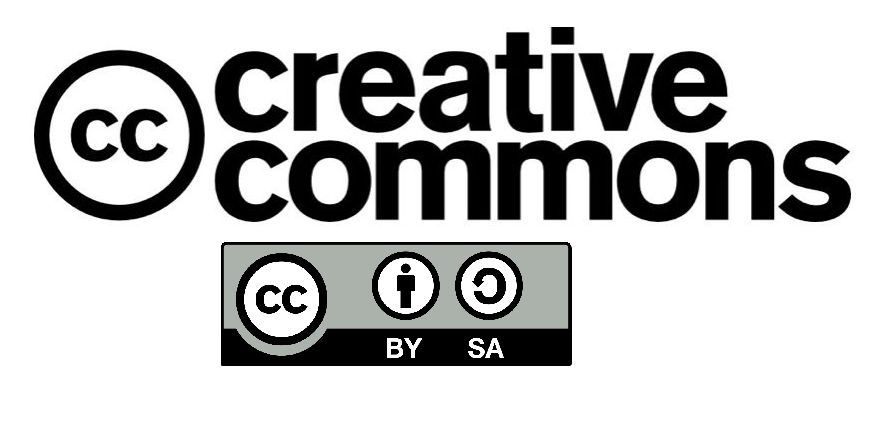


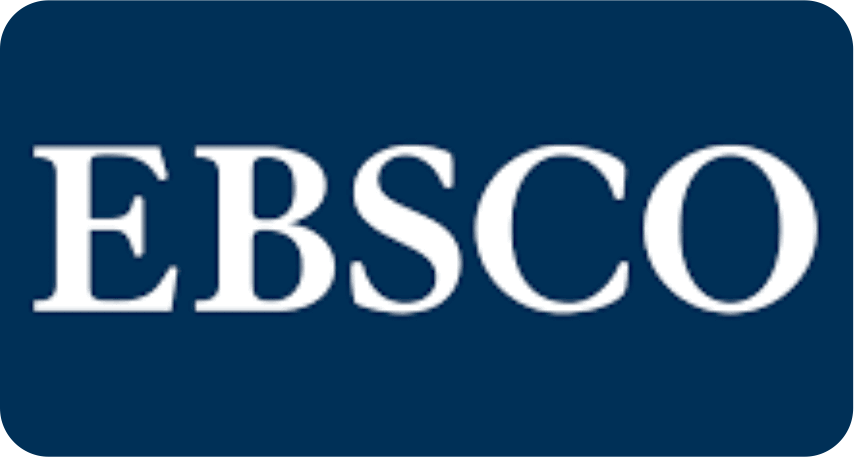






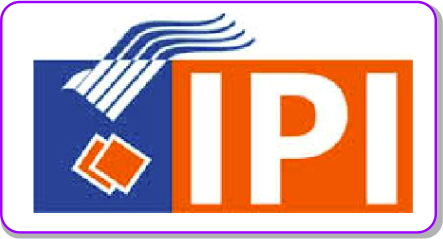 Â
 
